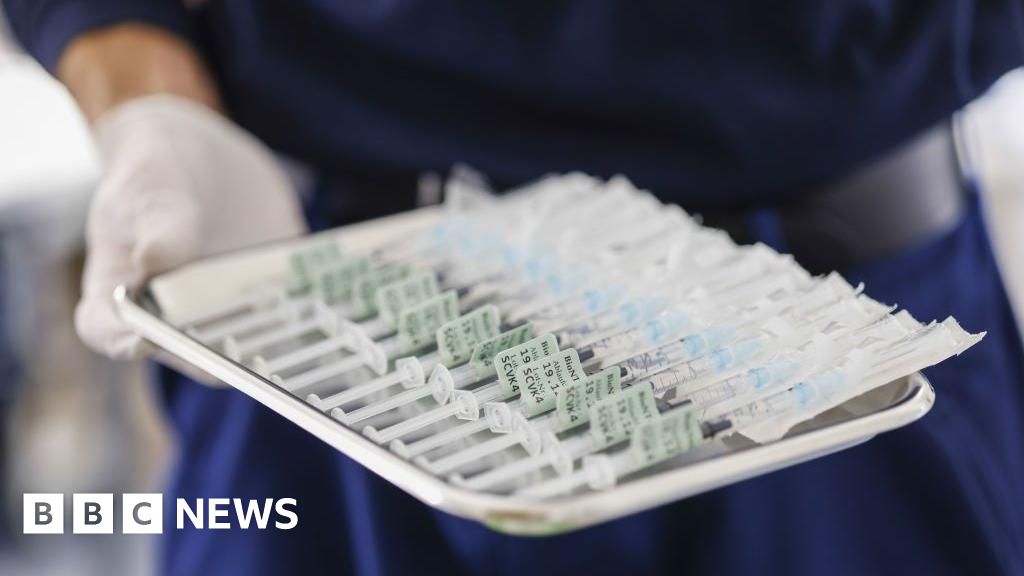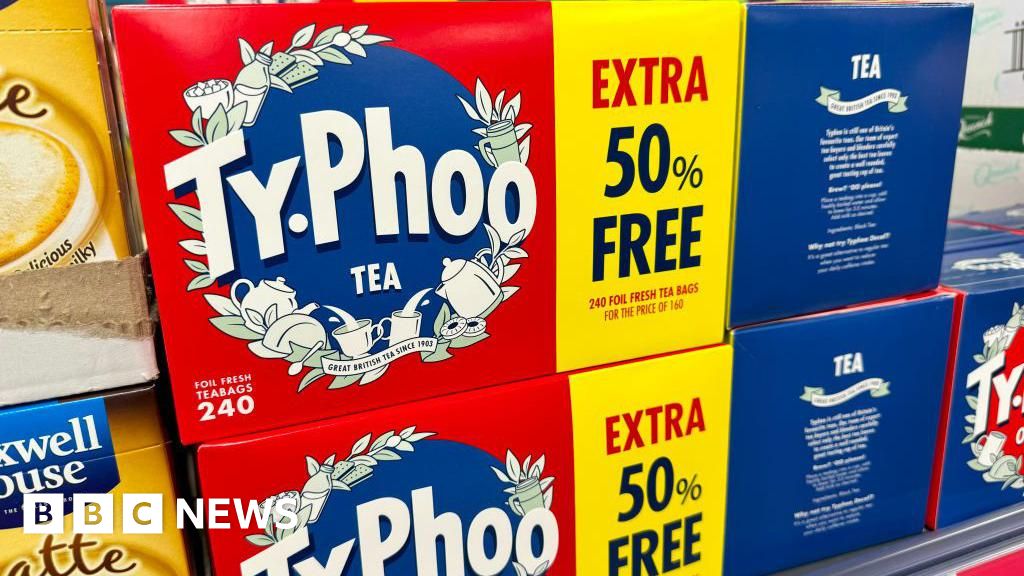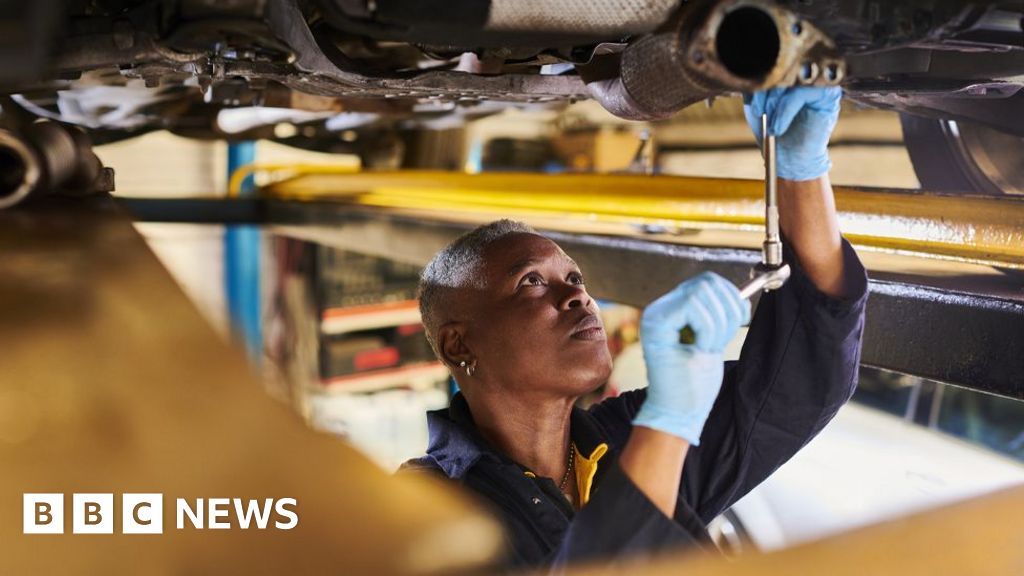ARTICLE AD BOX
By Lora Jones
Business reporter, BBC News
Image source, Deborah Daymond
Image caption,Deborah Daymond has had to diversify the business to stay afloat and switched from dairy to beef farming
The pandemic has transformed the world of work. This upheaval has left many people questioning what they do and why they do it.
In a BBC Business series called 'My Job', we ask how different people find purpose in their daily work.
Deborah Daymond has worked on Allercombe Farm, in Devon, for the last two decades. Alongside her husband, she raises Dexter cattle for beef, chops and delivers logs and sells their produce at markets nearby.
How did you get into the job?
When I was younger, I was going to [go and] work in a horse-racing yard in York. But being the good girl, I listened to my parents and was persuaded to apply to the police force instead. I actually didn't make it in because I was too shy!
Eventually I started working for a local farmer who was a lot older [than me]. I learned to milk the old fashioned way, bottle the milk and deliver it, then ended up nearly running the farm for them.
Image source, Deborah Daymond
Image caption,Deborah Daymond enjoyed being outdoors from a young age, horses were her first love
Unfortunately, this chap didn't want to take on a young girl as an employee, so, I took another milking job that came up elsewhere.
I always wanted to marry a farmer, but that didn't happen the first time and I spent some time in America. After we got back, my marriage ended. I met my current husband, and we went from there with our small farm.
It is a bit more difficult to get in now. Most people might go to an agricultural college, or get lucky and find a job somewhere that people will allow you to shadow [someone] and learn.
What is the biggest misconception?
That farmers are rich. We've only [got] 62 acres and that's tiny in today's world of farming.
I think people tend to assume that if you're driving around in a big car, you've got a lot of money. We've got a Land Rover and that's because it's a work-horse [vehicle], it pulls things. You can't take a load of sheep, pick up feed, or take a cow to market in a Mini.
You've probably got healthy finances on paper, but you're often cash poor in this industry.
There are a lot of plus points, but there are worries about finances, diseases and dogs coming through.... I don't mind that, though - I love working in nature and rearing the animals.
Is there a particular type of person that suits the job?
I think you need to be a hard worker. I'm fairly strong and you wouldn't usually catch me wearing white trousers as they'd just get covered in muck!
Being resilient and adaptable helps too. It can be a lonely life nowadays. A lot of farmers can suffer from depression because years ago, you'd have six-week holidays, you'd harvest your hay or straw with the help of your neighbours... But now it's all done mechanically. You're often in a tractor on your own and you don't see people very much. It's just the way of life.
Routes into farming:
- University: A foundation degree, higher national diploma or degree in agriculture, land management, or farming. Typically, you'll need two to three A levels, or equivalent, for a degree, or one or two A levels for a foundation degree.
- College: A course at agricultural college such as a Level 2 Certificate in land-based activities.
- Apprenticeship: You could get farming experience through apprenticeships relevant to this role such as a Level 2 general farm worker, or a Level 3 crop technician. Some GCSEs, often including English and maths, or equivalent, are usually required for entry.
- Work experience: You can gain valuable experience and move into farm management by working as a supervisor or assistant manager.
What are the biggest challenges you've faced at work?
We have definitely had some very challenging moments.
We used to be a dairy farm and years ago, we decided to build a big shed out the back. It was so we could keep all the young stock together as TB [tuberculosis] was rife back then.
Image source, Deborah Daymond
Image caption,Deborah Daymond and her husband rear Dexter cows for beef on Allercombe Farm
A few months into using it, the animals started dropping weight drastically, which we couldn't understand. We've always had amazing pedigree cows. Some mornings, you would wake up and find animals dead.
We limped on, but found out that a disease, called Schmallenberg, had been carried over from Europe by midges. It crippled the milking side of things and the calving pattern.
It was financially so difficult, and we'd produced over 100 tonnes of milk. Having to change to raising the Dexters for beef, producing other goods and now we do glamping holidays on-site - it's been a massive change from everything we've known. And I do miss seeing all that milk in big glass jars, seeing what the cows achieved.
Luckily, we haven't been too affected by the pandemic, or Brexit, because we are relatively small scale and sell directly to the public, which I love.
Farming by numbers
- 61%: The proportion of British food produced on its farms
- £120bn: The value of the UK food and farming industry to the national economy
- 4 million: Jobs in the UK provided by the industry
- 30,000: Kilometres of hedgerows planted or restored by British farmers
What do you wish people knew about the job?
How much hard work goes into the produce, and not to expect good food for nothing.
It's the same when it comes to a pair of shoes, or a dress. If you're buying a pack of burgers for a couple of pounds, you have to ask: What you are getting? What kind of quality is this?
I think people need to start considering shopping local because it is going to become harder and harder to come by good food.
I love being at the market, talking to people about where the food comes from locally and engaging with them. Watching their faces as they try the beef sausages, or steak, is amazing. So many people say: "I've not had beef like that in years!"
But people need to look after the farmers too. Without them, the countryside wouldn't look the same. Everyone loves to go out and spot lambs, or take walks, but without the farmers these areas wouldn't be looked after and there would be no food.
What are you most proud of?
I'm proud of the fact we're bettering the Dexter breed, because they were on the rare breed list and they're a small animal commercially, not particularly viable. That's our aim and it's a big commitment.
Mostly though, that we're rearing something that is natural and reared on grass.
We're doing it in an honest way, and people like to hear that.
This interview has been condensed for clarity.

 2 years ago
30
2 years ago
30








 English (US)
English (US)